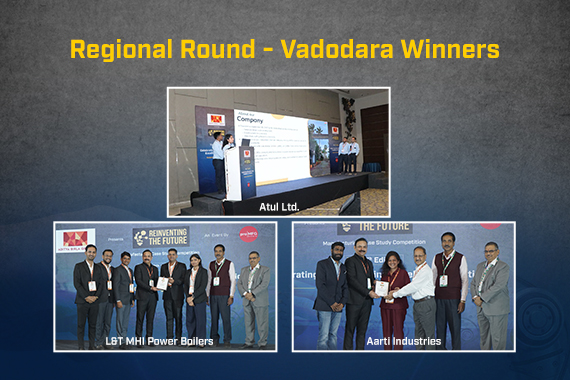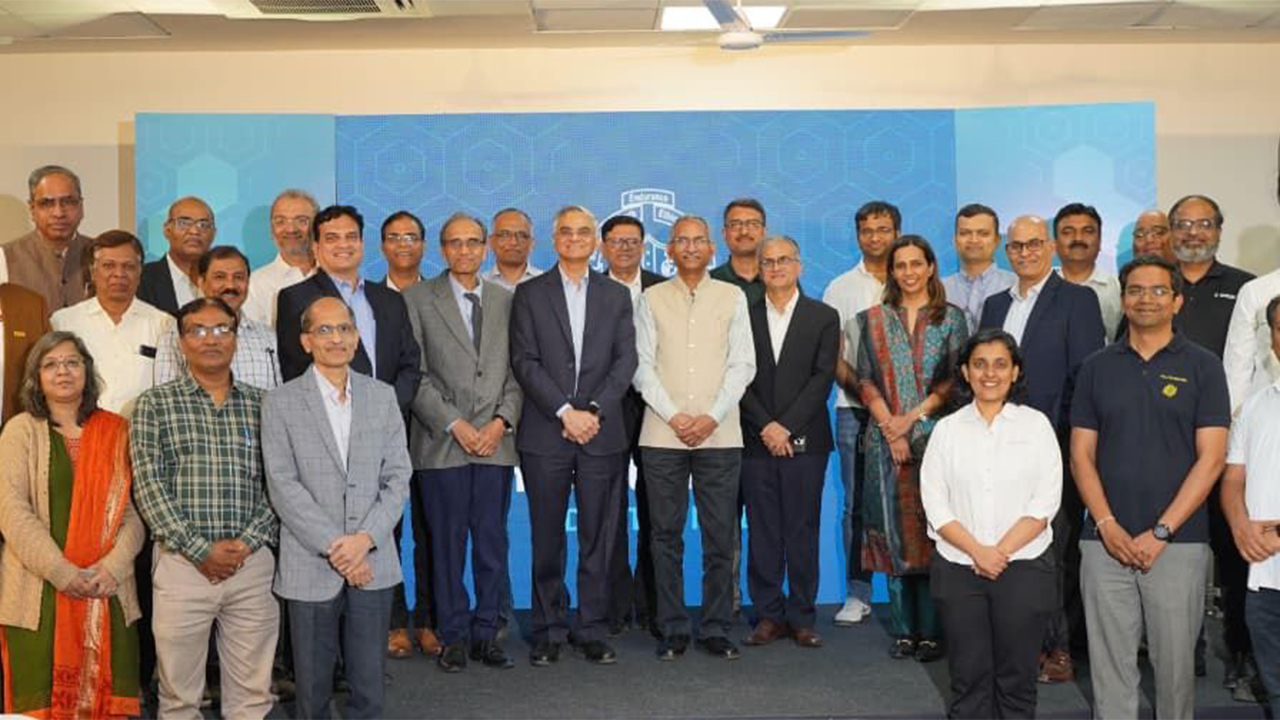Smart Manufacturing Research Conclave: Bridging Academia, Startups, and Industry for Innovation
#DigitalTransformation #SmartManufacturing #SmartManufacturingResearchConclave #NASSCOMCoEThe keynote address by R. N. Mohanty, President - Technology at Pidilite, highlighted technological advancements, emerging trends, and strategic approaches that are shaping the future of the manufacturing sector.
September 2024 : The 3rd Smart Manufacturing Research Conclave (SMRC) was recently held in Mumbai, bringing together a confluence of industry leaders, academic researchers, deep tech startups, and policymakers. Hosted by the MeitY Centre of Excellence (CoE)-IoT & AI, in collaboration with NASSCOM CoE, the event underscored the critical role of bridging the gap between the latest technologies, research, and real-world applications in the manufacturing sector. The event was attended by over 200 key stakeholders. Pro MFG Media was the official media partner.

The inaugural address delivered by Sanjeev Malhotra, CEO of NASSCOM CoE-IoT, set the tone for the event, focusing on the pressing need for digital transformation in manufacturing. He highlighted that while large companies are often able to invest in cutting-edge technologies, small and mid-sized enterprises (SMEs) frequently face significant hurdles, including high costs and the complexity of implementation. Mr. Malhotra emphasized the need for affordable, indigenously developed solutions that can be scaled across the industry, making digital transformation accessible to all.
One of the core missions of NASSCOM CoE, as outlined by Mr. Malhotra, is to support SMEs in overcoming these challenges by promoting the adoption of digital solutions. The CoE provides startups with access to advanced labs, mentorship, funding, and co-creation opportunities, creating a supportive ecosystem where innovation can thrive. This, in turn, helps bridge the gap between current industry needs and future technological advancements.

The keynote address by R. N. Mohanty, President - Technology at Pidilite, highlighted technological advancements, emerging trends, and strategic approaches that are shaping the future of the manufacturing sector. He provided valuable perspectives on how these innovations are driving efficiency, sustainability, and competitiveness in the industry.

A significant theme of the conclave was the integration of research and academia into the industrial ecosystem. Presentations from professors at IIT Bombay, including a session titled “Research in Action: Harnessing the Power of Smart Manufacturing,” illuminated how cutting-edge academic research is being translated into practical solutions that are driving innovation in manufacturing. The insights shared by these academic experts highlighted the powerful intersection of theoretical knowledge and real-world applications.
The event aimed to showcase how academia can contribute to the industry by providing innovative solutions to contemporary problems while also preparing the sector for future challenges. This synergy between academia and industry is crucial for fostering an environment where research can be rapidly commercialized and implemented, ensuring that the industry remains competitive on a global scale.

In addition to the academic contributions, the conclave featured thought-provoking discussions from industry stalwarts. Distinguished speakers from leading organizations such as Pidilite Industries, Aditya Birla Group, Mitsubishi Electric, Whirlpool, Siemens, Hitachi Digital Services, and Jio shared their perspectives on the future of manufacturing. They discussed the role of Collaborative AI in enhancing efficiency and flexibility within manufacturing processes, emphasizing how AI can revolutionize human-machine interactions.
One of the key takeaways from these discussions was the importance of sustainability in manufacturing. The industry experts delved into how technological research is being leveraged to improve precision, reduce waste, and promote eco-friendly practices. This focus on sustainability is increasingly becoming a priority as manufacturers seek to balance profitability with environmental responsibility.

The role of startups in driving innovation was another focal point of the conclave. NASSCOM CoE has been instrumental in providing startups with the resources they need to develop and mature their products. Through initiatives like lab access, mentorship, and funding opportunities, startups are given the tools to transform their ideas into market-ready solutions.
The concept of co-creation, where industry and startups collaborate closely to develop new technologies, was highlighted as a win-win scenario. This collaborative approach not only accelerates product development but also ensures that the solutions being developed are directly aligned with industry needs. The positive response from the industry to these initiatives underscores the mutual benefits of such partnerships.
By focusing on digital transformation, the integration of research into the industrial ecosystem, and the importance of sustainability, the event set the stage for future advancements in manufacturing. As digital technologies continue to evolve, such initiatives will be crucial in ensuring that the manufacturing sector remains agile, competitive, and prepared for the challenges of tomorrow.
NEWSLETTER
TRENDING ON PRO MFG
MORE FROM THE SECTION









